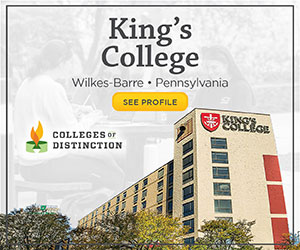How to Start Your College Search
Starting the college search journey is an exciting step toward shaping your future. While the process may seem overwhelming, breaking it down into manageable steps can help you make informed decisions and discover the best fit for your academic and personal growth. In this guide, we’ll explore the key steps to kickstart your college search and set you on the path to success.
Self-Reflection: Discovering Your Passions and Goals
Before delving into the vast realm of college possibilities, take some time for self-reflection. Consider your interests, strengths, and long-term goals. What subjects or activities ignite your passion? What academic and personal achievements make you proud? By understanding yourself better, you’ll be better equipped to identify colleges that align with your aspirations. At the University of Indianapolis, students exploring majors receive personalized career coaching. “Completing career assessments are a great way to learn about interests and priorities in relation to your career path,” said Brittany Dyer, Associate Director for Career Navigation at UIndy. “From there, job shadowing or completing an informational interview with someone working in a field of interest is a great way to explore career options.”
Academic Goals: Mapping Out Your Educational Journey
As you start your college search, it’s crucial to identify your academic interests and potential majors. What subjects do you excel in, and what fields spark your curiosity? Research colleges known for their strong programs in your chosen field, ensuring that your academic journey aligns with their offerings.
Keep an eye out for curricula that help you make an impact in the world. The University of the Incarnate Word, for example, puts service at the center of its mission, evident in both its more typical academic programs as well as the university’s more specialized degrees. Such programs include Music Therapy, 3D Animation and Game Design, and Fashion Management, which let you use your talents to benefit others. Whether it is using music to heal, technology to educate, or designing fashion to create a more sustainable future.
Extracurricular Activities: Pursuing Your Passions Beyond the Classroom
Your high school years are not just about academics; they are an opportunity to explore your interests and passions through extracurricular activities. Make a list of your involvements, hobbies, and personal passions. In your college search, seek schools that not only support these activities but also offer opportunities for growth and leadership.
Location and Size: Finding Your Ideal Campus Environment
Consider the environment in which you thrive best. Do you prefer an urban, suburban, or rural setting? Think about the size of the college and the surrounding community. Some students thrive in a bustling city atmosphere, while others find solace in a smaller, tight-knit community. Reflect on your preferences to narrow down your search.
Financial Considerations: Planning for Your Future
The financial aspect of college is a crucial consideration for both students and their families. Engage in open conversations about college costs and potential financial aid options with your family. Explore scholarship opportunities that can help alleviate the financial burden. Being informed about the costs early on will empower you to make sound financial decisions.
Visit College Websites: Your Gateway to Information
The internet is a treasure trove of information, and college websites are your primary source of insight into each institution. Dive into these websites to gather information about academic programs, admission requirements, campus facilities, and extracurricular offerings. Take notes on what resonates with you as you explore different colleges online. The Colleges of Distinction college search function is a great place to start.
Attend College Fairs: Connecting with Institutions
College fairs and information sessions are excellent opportunities to interact directly with college representatives. Attend these events in your area to gather brochures, ask questions, and gain firsthand knowledge about the colleges on your radar. Engaging with representatives can provide valuable insights and help you make informed decisions.
Connect with Current Students: Tapping into Real Experiences
Beyond official information, tapping into the real experiences of current students or alumni can provide invaluable insights. Reach out through social media or college forums to ask questions about campus life, academic challenges, and extracurricular opportunities. Learning from those who have walked the same path can offer a unique perspective.
Plan College Visits: Experiencing Campus Life Firsthand
Whenever possible, plan visits to the colleges on your list. Campus visits allow you to experience the atmosphere, interact with current students, attend tours, and get a feel for daily life. Pay attention to the campus culture, facilities, and the overall vibe. These visits can be instrumental in making informed decisions about your college choices.
Meredith College’s Grace Sugg emphasizes the importance of visiting a college’s campus: “A campus visit can be one of the most beneficial parts of your college search. Being on campus yourself is the best way to figure out if that particular school is a good fit for you. It helps you decide if you can picture yourself living and learning there and if it’s the place that’s going to allow you to grow most during your college experience.”
Stay Informed: Adapting to Changes in Admission Landscape
The college admission landscape is dynamic, with changes in requirements, deadlines, and application processes. Stay informed about any updates or modifications in admission criteria. Subscribe to newsletters, attend information sessions, and regularly check college websites for the latest information.
Prepare for Standardized Tests: Setting the Stage for Success
Standardized tests like the SAT or ACT are an integral part of the college application process. Consider when you plan to take these tests and begin your preparation early. Explore study resources, practice exams, and test-taking strategies to maximize your performance on exam day.
Conclusion
Beginning your college search process is a significant milestone that marks the beginning of a transformative journey. Approach it with curiosity, open-mindedness, and a proactive attitude. Your unique qualities, interests, and aspirations will guide you toward colleges that not only meet your academic needs but also nurture your personal growth. Remember, this is your journey, and each step you take brings you closer to discovering the college that feels like home. Embrace the process, and enjoy the exciting adventure that lies ahead!






